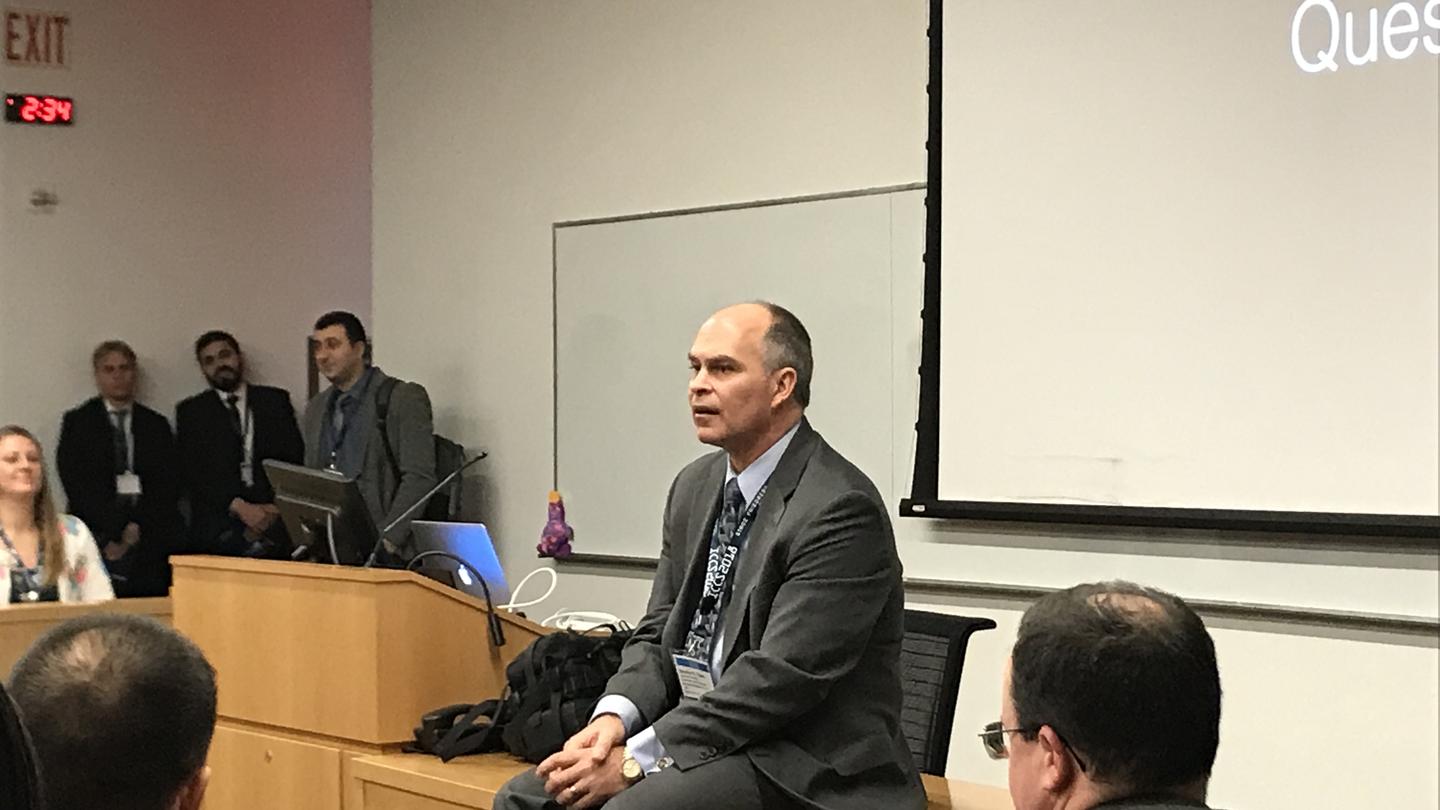 4825
4825
 2018-01-11
2018-01-11

Ever since Apple made encryption default on the iPhone, the FBI has been waging a war against encryption, complaining that cryptography so strong the company itself can’t break it makes it harder to catch criminals and terrorists.
On Wednesday, at the the International Conference on Cyber Security in Manhattan, FBI forensic expert Stephen Flatley lashed out at Apple, calling the company “jerks,” and “evil geniuses” for making his and his colleagues' investigative work harder. For example, Flatley complained that Apple recently made password guesses slower, changing the hash iterations from 10,000 to 10,000,000.
That means, he explained, that “password attempts speed went from 45 passwords a second to one every 18 seconds,” referring to the difficulty of cracking a password using a “brute force” method in which every possible permutation is tried. There are tools that can input thousands of passwords in a very short period of time—if the attempts per minute are limited, it becomes much harder and slower to crack.
"Your crack time just went from two days to two months," Flatley said.
“At what point is it just trying to one up things and at what point is it to thwart law enforcement?" he added. "Apple is pretty good at evil genius stuff."
On the other hand, Flatley repeatedly praised the israeli company Cellebrite, which sells hacking devices and technologies to law enforcement agencies around the world. Flatley said that they are the ones who can counter Apple’s security technology.
“If you have another evil genius, Cellebrite,then maybe we can get into that front," he said, facetiously coughing as he said “Cellebrite.”
Flatley’s statements come a day after FBI director Christopher Wray renewed former director James Comey’s rhetorical war against encryption, calling it an “urgent public safety issue.”
Cybersecurity experts and civil liberties organizations, meanwhile, have long made the case that iPhone encryption keeps the average consumer’s data safe from hackers and authoritarian surveillance, a net benefit for society.
Source: motherboard